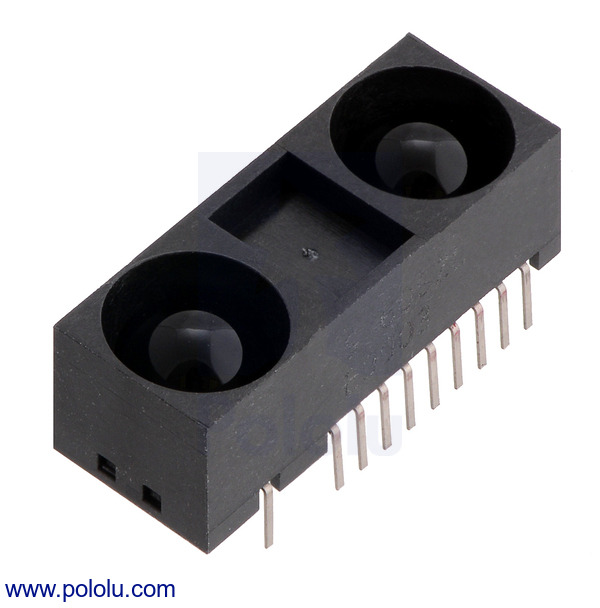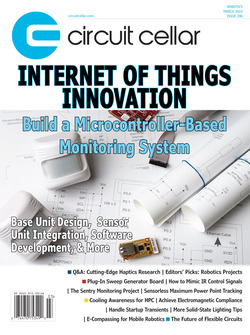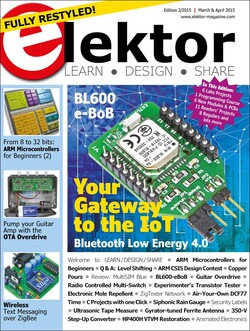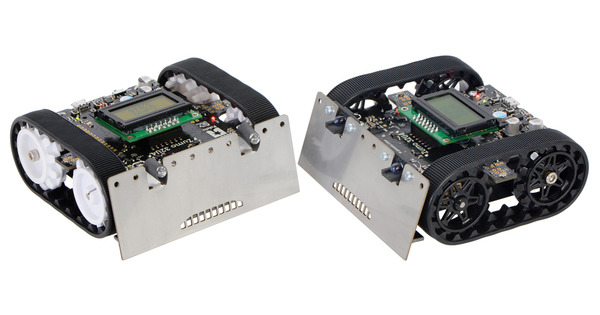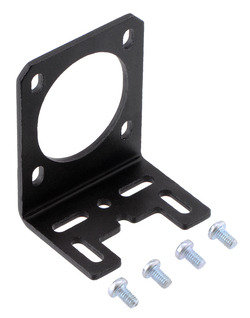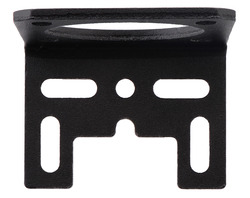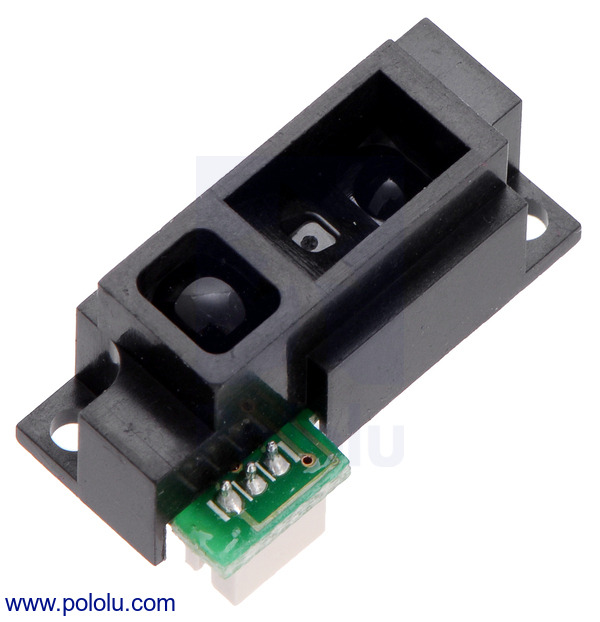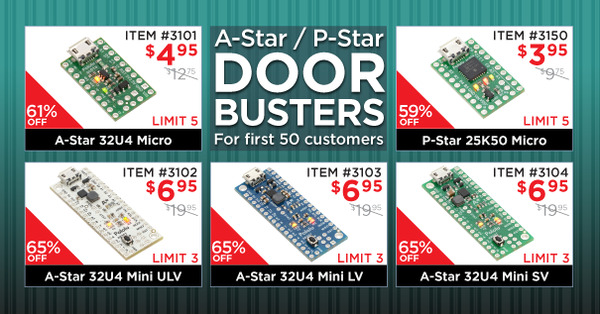Pololu Blog » User Profile: Ben » Posts by Ben »
Posts by Ben (Page 12)
You are currently viewing a selection of posts from the Pololu Blog. You can also view all the posts.
Popular tags: community projects new products raspberry pi arduino more…
New product: Sharp GP2Y0A60SZLF Analog Distance Sensor
We are now offering Sharp’s GP2Y0A60SZLF analog distance sensor by itself. This is a great sensor with a wide 4″ to 60″ (10 cm to 150 cm) detection range and a high update rate of 60 Hz, but it requires additional components to use and has a non-standard 1.5 mm pitch. You can use this sensor with our compact carrier boards to make a complete sensor module, or you can get our carrier boards with the GP2Y0A60SZLF already installed.
For more information, see the GP2Y0A60SZLF product page.
Looking for Wixel feedback
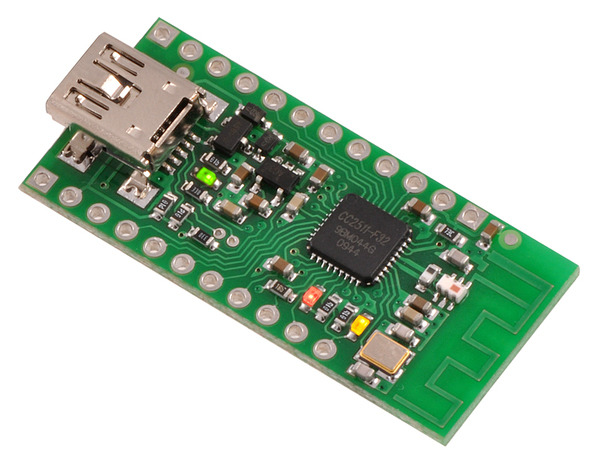 |
PeterPan, an active member of our forum, recently started a thread asking other Wixel users to push for us to get Wixels FCC certified. The Wixel is getting to be one of our older products, so it is due for some updates, too (e.g., our new USB products have moved on to Micro-B connectors). We realize many of our customers do not necessarily want to publicly discuss their projects, so if you do not feel like participating in the forum thread, please feel free to contact us directly about your thoughts on FCC certification and other ways you would like to see the Wixel improved.
Arduino Day 2015 Sale
 |
Tomorrow is Arduino Day, and we are joining in on the fun by offering big discounts on many of our Arduino-related products, including our A-Star programmable controllers and Arduino shields. The sale has already started, and it will run through the end of Sunday (I know, Arduino Day is a one-day event, but this makes sure the sale lasts all Arduino Day in every time zone). You can find all of the sale items on our Arduino Day 2015 sale page.
Free magazines: March 2015 Circuit Cellar and March/April 2015 Elektor
|
|
Get FREE copies of Circuit Cellar magazine’s March issue and Elektor magazine’s March/April issue with your order, while supplies last. To get your free issues, enter the coupon codes CIRCUIT0315 and ELEKTOR0315 into your shopping cart. The Circuit Cellar magazine will add 6 ounces and the Elektor magazine will add 9 ounces to the package weight when calculating your shipping options.
For back issues and more information, see our free Circuit Cellar magazine offers and free Elektor magazine offers.
Happy Pi Day
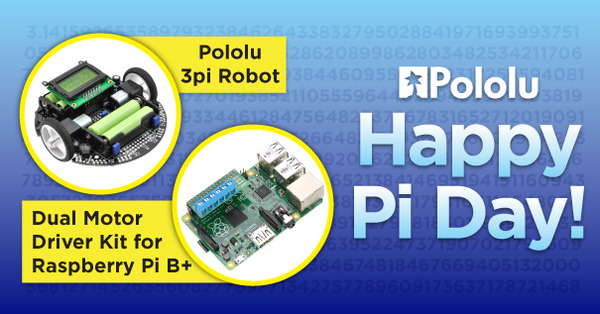 |
Tomorrow is Pi Day (3/14/15 in the standard US date format of month/day/year), and we are celebrating by having a special overly-pi-themed one-day sale:
- Use coupon code PIDAY975 to get 31.4% off a 3pi robot (limit 3 per customer).
- Use coupon code PIDAY2753 to get a DRV8835 Dual Motor Driver Kit for Raspberry Pi B+ for $3.14 (limit 3 per customer).
- Use coupon code PIDAY to get 3.14% off your entire order (this discount is only valid for order subtotals between $3.14 and $314.16 and cannot be combined with other coupon discounts).
The sale is live now and runs through the end of tomorrow (midnight Pacific Time).
200,000 orders and new Zumo robot preview
We received order 1J200000 this morning from Ralf in Germany! However, it turns out that because of a one-time database screwup, this was not actually our 200,000th order (thanks, Paul). We received that one a few minutes later when Alex from Iowa placed order 1J200008. To celebrate, we included a special gift with both of these orders: a prototype of the new Zumo robot we expect to release this month. Congratulations to Ralf and Alex! For everyone else, keep an eye on this blog for more information on our new Zumos, and thank you to all our customers for helping us get to 200k orders.
New product: Aluminum mounting bracket for NEMA 14 stepper motors
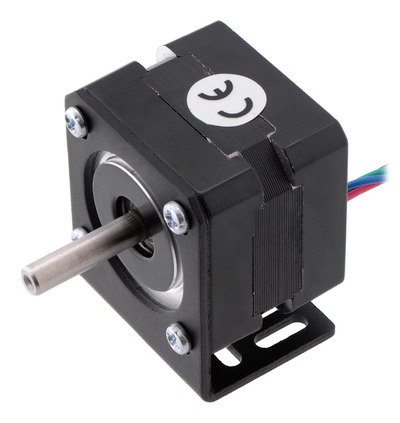 |
This new stepper motor bracket is designed to work with typical NEMA 14-size stepper motors, including all of the NEMA 14 stepper motors we carry. It is made from 2mm-thick black anodized aluminum, and like the larger NEMA 17 bracket we released earlier this year, it features slot cutouts to allow for a variety of mounting options.
|
|
For more information, see the product page.
New product: 56:1 Metal Gearmotor 20Dx42L mm
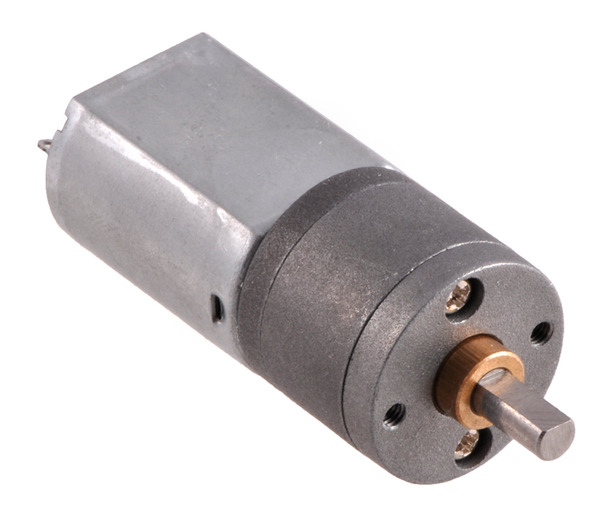 |
We have added a new gear ratio to our 20D mm line of metal gearmotors. This gearmotor has a 56:1 gearbox, resulting in a no-load speed of 250 RPM and a stall torque of 45 oz-in at 6 V.
New product: Sharp GP2Y0A51SK0F Analog Distance Sensor 2-15cm
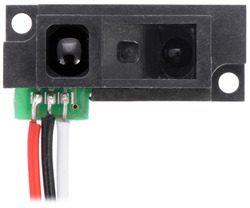 |
Sharp GP2Y0A51SK0F Analog Distance Sensor 2-15cm with wires soldered directly to the sensor PCB. |
|---|
We are now carrying the short-range Sharp GP2Y0A51SK0F Analog Distance Sensor. Like the GP2Y0D815Z0F we released a few months ago, this sensor has a maximum intended sensing range of 15 cm, but unlike that other sensor, this module tells you where the detected object is in its 2 cm to 15 cm range. Its close minimum sensing distance of 2 cm and high 60 Hz update rate make this a great choice for close-proximity range-finding, or the analog voltage output can be passed through a comparator to make an adjustable-threshold alternative to our digital Sharp distance sensors.
This sensor uses a 1.5 mm pitch JST ZH connector, which is different from the connectors on all the other Sharp sensors we carry. Unfortunately, this means it will not work with the JST PH cables we recommend for use with some of those other sensors. We are working on getting compatible cables, but in the interim, it is not too difficult (but not exactly easy) to solder wires directly to the output pins like in the picture on the right.
This sensor is also quite a bit smaller than most of the other analog Sharp sensors, so it will not work with our new brackets.
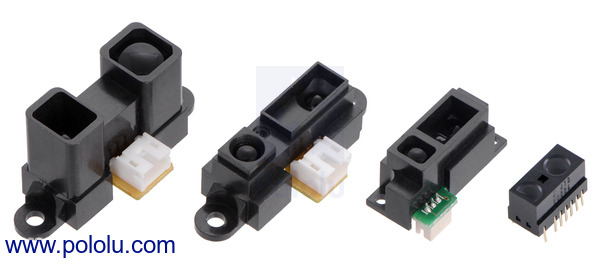 |
A variety of Sharp distance sensors. From left to right: GP2Y0A02, GP2Y0A21 or GP2Y0A41, GP2Y0A51, and GP2Y0D8xx. |
|---|
For more information, see the GP2Y0A51SK0F product page.
Black Friday/Cyber Monday Sale: check out all the deals!
You can now find all of our sale details, including a full list of the sale items, on our Black Friday/Cyber Monday sale page. The first doorbuster deals go live in less than 12 hours!
